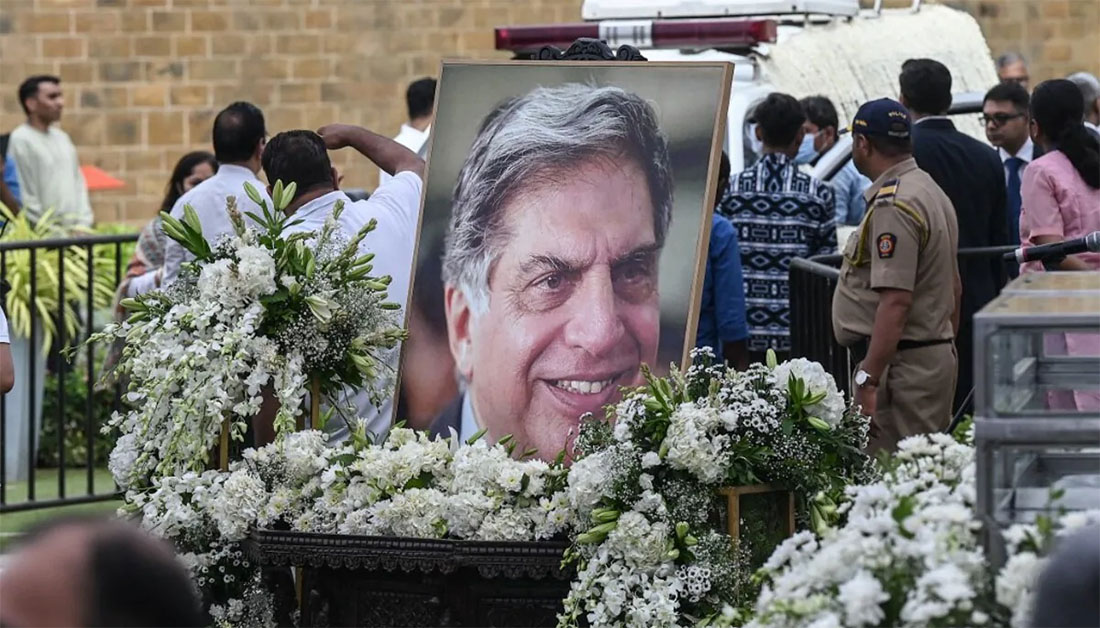
Photo Credit: Getty Images
Indian business magnate Ratan Tata, known for his visionary leadership and transforming the Tata Group into a global conglomerate, passed away at the age of 86. His death marks the end of an era for India's industrial landscape, as he was one of the most respected and influential business figures in the world.
Ratan Tata was born on December 28, 1937, into the famous Tata family, which had already established itself as one of India's most powerful industrial dynasties. After completing his education at Cornell University and Harvard Business School, he returned to India and began working in the Tata Group, a company founded by his great-grandfather Jamsetji Tata in 1868. Starting his career in the Tata Steel plant, Ratan Tata's hands-on experience gave him a unique understanding of the business from the ground up.
In 1991, Ratan Tata took over as chairman of the Tata Group, succeeding his predecessor J.R.D. Tata. It was under Ratan's leadership that the conglomerate grew exponentially, both in India and internationally. One of his first major reforms was modernizing the company's operations and refocusing its strategy on innovation and global expansion.
Ratan Tata's business acumen was particularly evident in his bold acquisitions. The most notable of these were Tata Motors' acquisition of Jaguar Land Rover in 2008 and Tata Steel's purchase of Corus in 2007. These high-profile deals not only strengthened Tata Group's global presence but also positioned Indian companies as key players on the international stage. Ratan Tata was also instrumental in launching the Tata Nano, the world's most affordable car, aimed at making vehicle ownership accessible to India's burgeoning middle class.
Tata's leadership style was characterized by a blend of innovation and philanthropy. Throughout his tenure, he prioritized ethical practices and corporate responsibility, ensuring that the Tata Group's success was not just measured in profits but also by its contributions to society. Under his guidance, Tata companies invested heavily in social causes, from healthcare and education to rural development. Today, the Tata Group donates a significant portion of its profits to charitable trusts, embodying the founder's vision of giving back to society.
Despite his wealth and status, Ratan Tata remained grounded, never flaunting his riches. Known for his humility, he lived a relatively modest life, choosing to stay focused on improving India's infrastructure, industry, and social welfare. As a result, Tata earned the unwavering respect and admiration of millions, both in India and abroad.
In 2012, Ratan Tata retired from his position as chairman of the Tata Group, passing on the mantle to his successor, Cyrus Mistry, though he continued to be a key figure in the company's affairs. His legacy, however, went beyond business. Ratan Tata's dedication to the betterment of India and his visionary leadership will be remembered as a cornerstone of modern India's economic rise.
His death marks the end of an era, but the empire he built, the ethics he championed, and the values he lived by will continue to inspire future generations of entrepreneurs and business leaders.
















